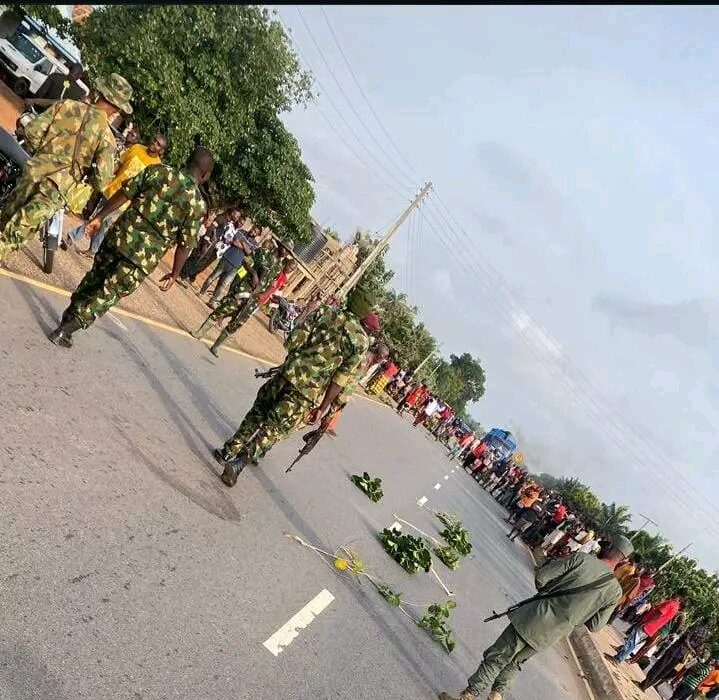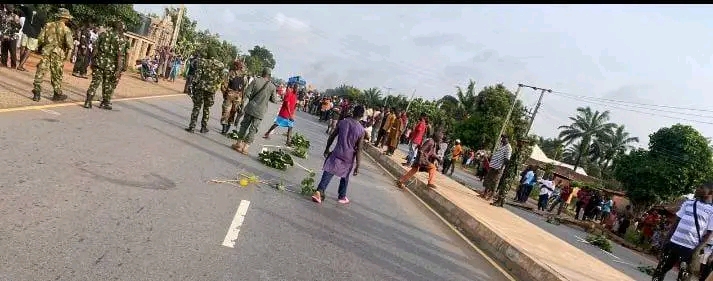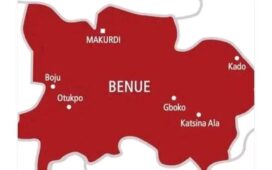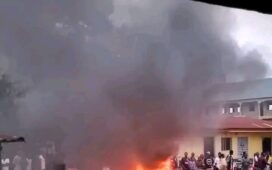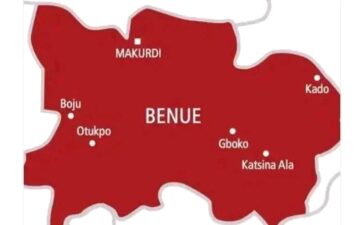Join our WhatsApp channel HERE for the latest Benue news and updates!
Tragedy struck early this morning on the vital Makurdi-Lafia road in Benue State, where a suspected attack by Fulani herdsmen left passengers and motorists stranded and sparked fears of yet another escalation in the region’s ongoing farmer-herder tensions. The incident, which unfolded around 7:00 a.m. near Kardako, forced locals to block the highway in protest, highlighting the frustration and vulnerability felt by communities along this crucial corridor connecting Benue to Nasarawa State.
Eyewitness accounts and social media posts painted a grim picture: gunmen allegedly ambushed travelers, leading to an immediate shutdown of the road as stranded individuals gathered, their vehicles halted amid growing panic. Images circulating online showed crowds of concerned locals clustered around barricades fashioned from logs and debris, a stark reminder of the barricades thrown up just last month in September 2025, when irate villagers blocked the same highway with the bodies of attack victims to demand action. This fresh assault echoes a pattern of violence that has plagued the area, with similar ambushes reported as far back as 2023 near Ortese, where armed herdsmen killed three people in a brazen daylight attack.
But in a turn that brought some relief amid the chaos, security forces acted with commendable speed. Officers from the Nigerian Army, collaborating closely with the Police, swiftly intervened to clear the blockade and restore access to the highway. By late morning, the road was fully reopened, allowing traffic to flow once more. “It is therefore safe for motorists to proceed,” confirmed a local update shared widely on platforms like X and Facebook, underscoring the joint operation’s success in preventing a prolonged disruption.
The rapid response has been hailed as a positive step in a state where such incidents often linger unresolved, contributing to cycles of reprisals and displacement. Benue, a flashpoint in Nigeria’s broader herder-farmer conflicts, has seen devastating attacks this year alone, including the massacre of nearly 200 in Yelwata in June and the killing of a Catholic choirmaster along the North Bank-Lafia stretch in September. These events, often attributed to armed Fulani militants, have displaced thousands and strained relations between pastoralists and predominantly Christian farming communities.
As details emerge, questions remain about the exact toll of today’s attack—reports suggest injuries but no confirmed fatalities yet—and the deeper motivations behind it. Was this a targeted ambush tied to land disputes, or part of the premeditated operations that security experts have warned about in recent years? Local voices on X, including posts from residents like @Tarvershima100 and @Desmonddeekay, captured the raw emotion of the moment, with hashtags like #StopBenueKillings amplifying calls for lasting solutions.
In the aftermath, gratitude poured in for the security teams who “worked tirelessly to restore access,” as one post noted. Prayers for the departed and a speedy recovery for the injured echoed across updates, a poignant “Amen” closing messages of hope amid sorrow. Yet, beneath the relief lies an urgent plea: Benue’s people deserve more than temporary fixes. Enhanced patrols, dialogue between herders and farmers, and federal commitment to anti-open grazing laws could be the barriers needed to end this bloodshed.
For now, the Makurdi-Lafia road hums with cautious movement again, a fragile lifeline in a land scarred by too many such mornings. As one community member put it online, “We are not safe in Benue”—a stark reminder that today’s reopening is just a pause, not an end, to the struggle.

